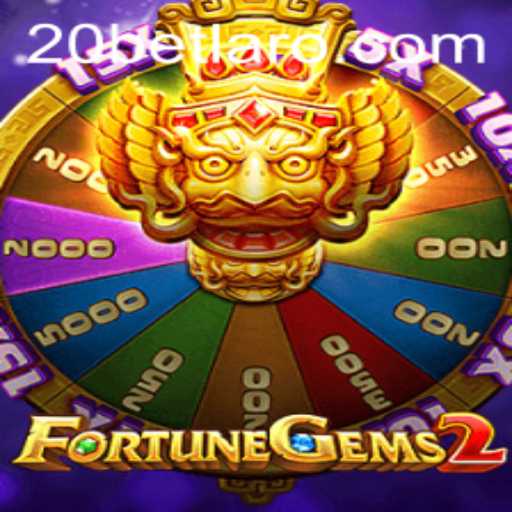
Jueteng
Understanding Jueteng: A Cultural and Social Phenomenon and Its Connections to Illegal Gambling
Why Choose Sport in 20bet
- ⚽
Full Coverage
Follow a wide variety of sports, including football, basketball, and more.
- 📊
Detailed Statistics
Access comprehensive data to help you make informed decisions.
- 🎁
Special Promotions
Earn exclusive bonuses and participate in end-of-year offers.
Understanding Jueteng: A Cultural and Social Phenomenon and Its Connections to Illegal Gambling
- 🏆
Soccer
Watch live matches and enjoy the best betting options.
- 🏀
Basketball
Dive into the on-court action with exclusive stats and analysis.
- 🎾
Tennis
Bet on international tournaments with competitive odds.
Discover the Exciting World of MovenJump: The Game with a Twist of 20bet
Explore the captivating gameplay, rules, and unique features of MovenJump, a trendy new game infused with the 20bet concept. This article delves into how current events influence its popularity and competitive edge.
- 📖
Study team statistics and performance before betting.
- 🕒
Gamble responsibly and set clear limits.
- 💡
Take advantage of seasonal promotions to maximize your earnings.

Jueteng

The Complex World of Jueteng: More Than Just Illegal Gambling
Jueteng is a form of illegal numbers game deeply rooted in the cultural and social tapestry of the Philippines. It is a practice that dates back to the Spanish colonial period and has since become an integral, albeit controversial, part of Filipino life. Understanding Jueteng requires not only a look at its mechanics and impact but also an exploration of its historical context and social implications.
Origins and Mechanics of Jueteng
The origins of Jueteng can be traced back to the Spanish colonial era when the numbers game was introduced to the Filipino populace. Comprising a mix of Spanish and Chinese influences, Jueteng has carved out a niche in the local communities, especially in Luzon, where it remains prevalent despite ongoing legal challenges.
The mechanics of Jueteng are straightforward yet intriguing. Typically, two numbers are chosen from 1 to 37. Bettors place their wagers on a particular combination, hoping for their numbers to be drawn. The winning combination is determined by drawing from a set of balls or similar objects, much like a lottery.
The Social and Economic Impact of Jueteng
Despite being illegal, Jueteng has found a stronghold in many communities due to its perceived economic benefits. For many Filipinos in low-income sectors, Jueteng offers a slim yet enticing chance at instant wealth. It provides a form of economic relief, allowing participants to dream of escaping poverty, even if only temporarily.
Moreover, Jueteng has created a complex web of economic interactions that sustain local communities. It provides employment to thousands, from collectors known as cobradors, who gather bets, to the operators who ensure the system runs smoothly. This underground economy thrives despite crackdowns, underscoring how deeply entrenched Jueteng is in society.
Legal Battles and Controversies
Jueteng is continuously at the center of legal controversies in the Philippines. Government initiatives to eradicate Jueteng have met with mixed results. Efforts to legalize, regulate, or completely ban it have sparked debates across political and community lines.
Scandals involving government officials accused of receiving protection money in exchange for allowing Jueteng to operate have increasingly come to light. These controversies underscore the corruption that is sometimes associated with illicit gambling activities.
Jueteng and Modern Gambling Platforms
As the digital age transforms traditional industries, gambling too is evolving, presenting new challenges and opportunities for players both legally and illegally. Platforms like 20bet have emerged as significant players in the digital gambling arena, offering a legal and regulated alternative to traditional betting practices like Jueteng. While they mark a shift towards more controlled gaming environments, they also raise questions about accessibility and addiction in the digital age.
The rise of 20bet and similar platforms highlight regional differences in gambling practices while showcasing the universal appeal of games of chance. These evolving platforms provide a context through which the continued allure of Jueteng can be understood, as users seek out formats that blend convenience with the thrill of potential winnings.
Conclusion
Jueteng remains a contentious issue in the Philippines, where its social, economic, and political dimensions intersect. The game has not only withstood numerous attempts at eradication but also adapted and changed with the times. The rise of regulated platforms like 20bet presents a new frontier in the debate over gambling’s place in society, offering a legal alternative to traditional practices but also posing new sets of challenges.
Ultimately, understanding Jueteng requires more than a cursory glance at a game of chance. It demands an acknowledgment of the historical, economic, and social frameworks in which it exists—a reminder that illegal or not, gambling will continue to captivate the human spirit with its promise of fortune.
Media Reports
-

Explore the captivating world of HotDJ, a rhythm game that combines musical mastery with engaging gameplay, and discover how 20bet adds an extra layer of excitement.
-

Explore the captivating world of LegacyoftheSages, a groundbreaking game that intertwines adventure and strategy, now trending with 20bet.
-

Explore the enchanting world of FortuneGems2, the latest sensation on 20bet, where myth meets excitement in a game filled with surprises and treasures.
-

Explore the captivating realm of ExpandingMaster and immerse yourself in its innovative gameplay, strategic dynamics, and the intriguing integration with 20bet.
-

Explore the captivating world of FortuneNeko, a dynamic game available on 20Bet. Uncover the game's unique features, engaging gameplay, and how it integrates into current gaming trends.
-

Discover RioPleasures, an exciting game blending immersive gameplay and strategic decision-making, as it takes the online gaming world by storm.
-

Discover the thrilling new slot game DoubleWilds, explore its features and learn how to play with our comprehensive guide.
-

Dive into the world of WinWinFishPrawnCrab, an engaging game offering unique fun and excitement to players on 20bet. Discover its rules, mechanics, and place within contemporary gaming trends.


